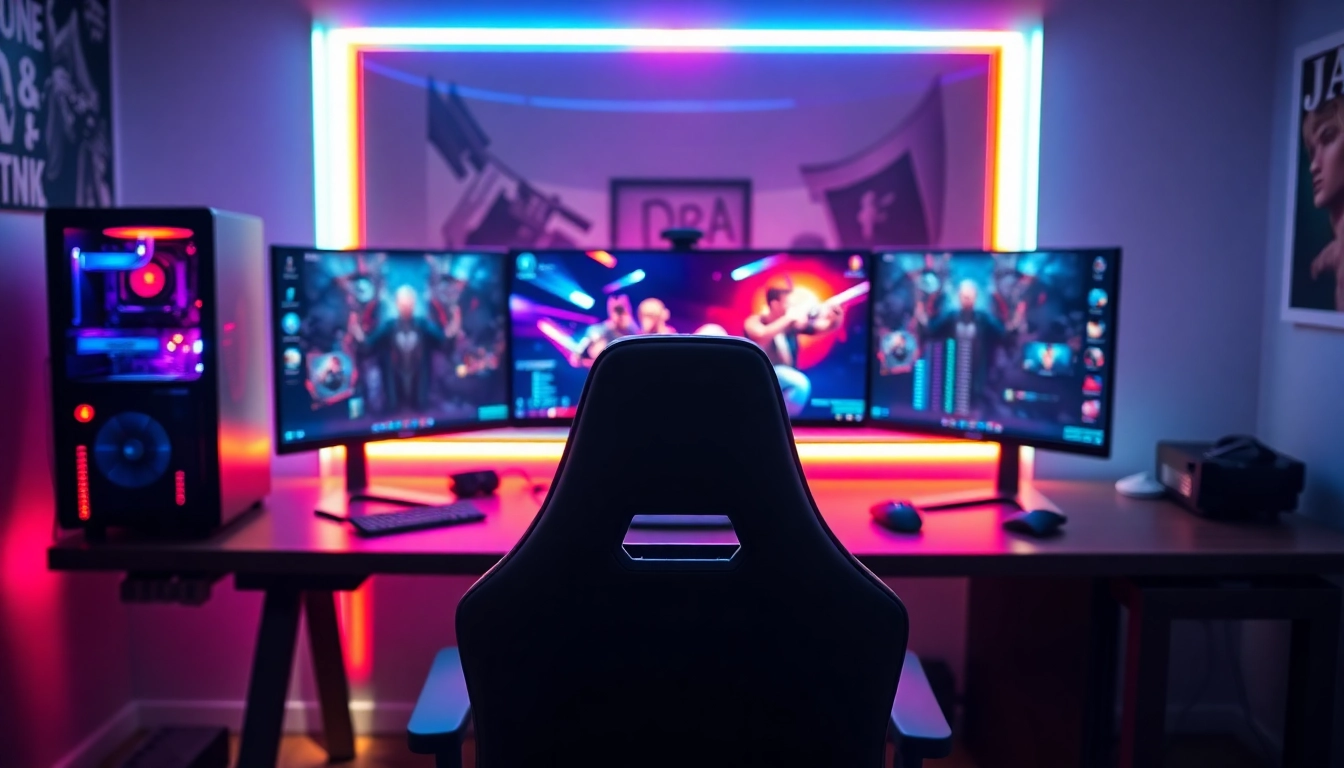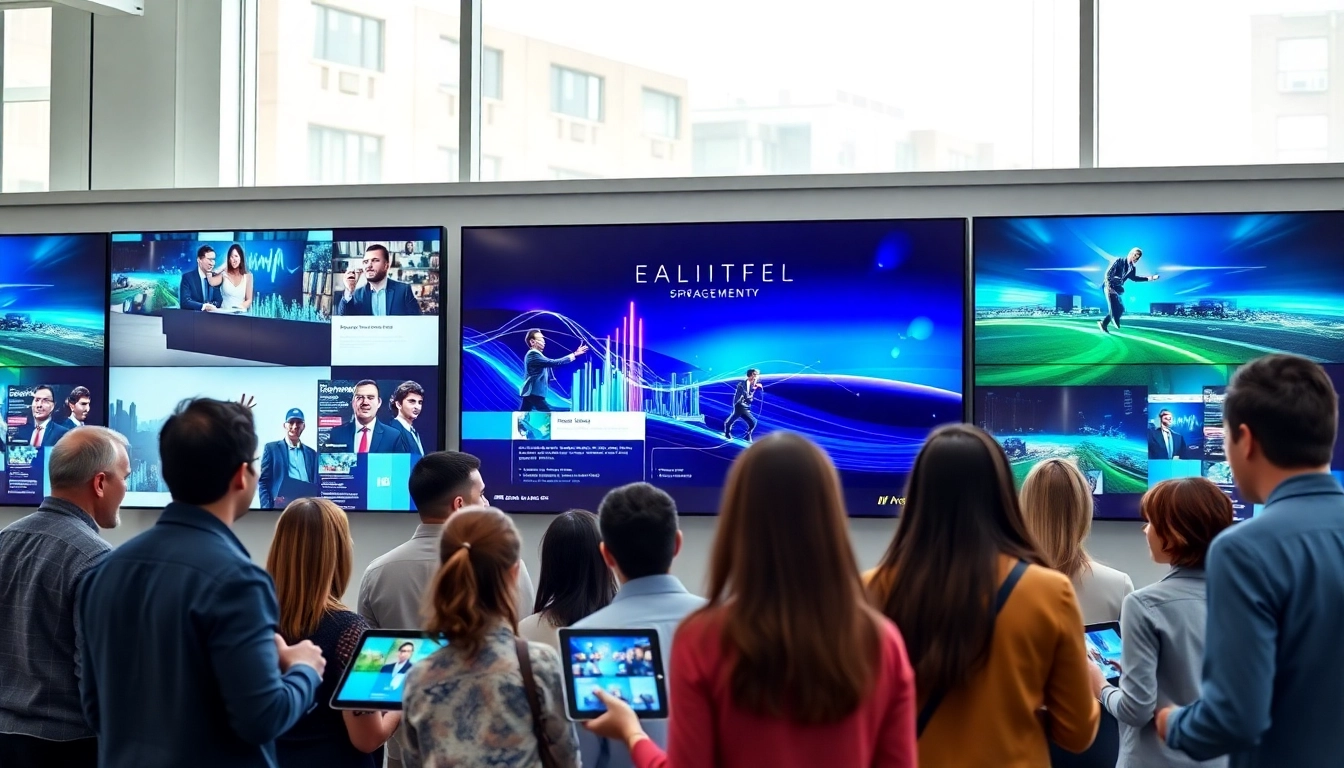1. Understanding Gaming Computer Components
Building or purchasing a gaming computer involves making informed choices about hardware components. Each part plays a crucial role in determining the performance, longevity, and overall gaming experience. This guide delves into the critical components of a gaming computer, helping you understand their significance and how to select the best options for your needs. A comprehensive understanding of Gaming Computer components is imperative for both novice and experienced gamers.
a. The Importance of a Powerful GPU
The Graphics Processing Unit (GPU) is often considered the heart of a gaming computer. It is responsible for rendering images, textures, and animations. A powerful GPU can vastly improve your gaming experience, allowing you to run games at higher resolutions and with more intricate visual settings. When selecting a GPU, consider factors such as VRAM, clock speed, and support for technologies like Ray Tracing, which enhances realistic lighting effects. Popular GPUs vary in performance, and understanding benchmarks and reviews can aid in making an informed choice.
b. Selecting the Right CPU for Gaming
The Central Processing Unit (CPU) is the brain of your gaming computer, handling all the calculations and tasks that the system performs. For gaming, a CPU with high clock speeds and multiple cores is beneficial, as many modern games are designed to take advantage of multi-threading. Consider CPUs from well-established brands that offer a mix of performance and energy efficiency. Evaluating core counts and clock speed will provide a clearer indication of how your CPU will perform in gaming scenarios. A good CPU can also influence your GPU’s performance, as it limits a system’s overall capability.
c. Choosing Efficient Cooling Solutions
A high-performance gaming computer can generate considerable heat during intense gameplay. Effective cooling solutions are essential to prevent overheating, which can lead to throttling and reduced performance. Cooling options range from air cooling solutions, such as heatsinks and fans, to liquid cooling systems that provide superior thermal management. When choosing a cooling solution, consider factors like noise levels, ease of installation, and the ambient temperature of your setup. Investing in good cooling can enhance system longevity and stability while improving performance in demanding scenarios.
2. Setting a Budget for Your Gaming Computer
Budgeting is a significant step in building or purchasing a gaming computer. With various components and options available, it’s crucial to create a balanced budget that meets your performance needs without breaking the bank.
a. Estimating Costs for Essential Components
Begin by listing out the essential components of a gaming computer: the GPU, CPU, RAM, motherboard, storage, power supply unit (PSU), and casing. Research the price ranges for these components while considering their specifications and brands. As you create a list, ensure you account for the cost of peripherals such as monitors, keyboards, and mice, as these can significantly affect your overall gaming experience.
b. Balancing Performance and Price
When budgeting for your gaming computer, striking the right balance between performance and price is vital. This means prioritizing components that will yield the most effective performance enhancements for your budget. For instance, if you are investing heavily in a high-end GPU, ensure that the CPU and RAM are also capable of supporting that performance. Avoid overspending on minor upgrades that won’t significantly impact your gaming experience.
c. Where to Find the Best Deals
To secure the best deals for your gaming components, extensive research is necessary. Online marketplaces, local computer hardware stores, and second-hand sales can all provide opportunities for great savings. Additionally, keeping an eye on seasonal sales events can lead to advantageous pricing. Use price comparison tools to help identify the best deals and consider purchasing bundled components to gain discounts. Furthermore, warranties and return policies are also critical to factor in when evaluating these deals.
3. Building vs. Buying Your Gaming Computer
Deciding whether to build your gaming computer or purchase a pre-built system is an important consideration that can affect performance, budget, and fulfillment. Both options have their merits and potential drawbacks.
a. Advantages of Custom Builds
Custom building your gaming computer allows for maximum flexibility. You can select components that best suit your gaming style and performance desires. Furthermore, the process of building a computer provides invaluable experience and knowledge about how each part interacts within the ecosystem. Custom builds can also be more cost-effective, enabling you to allocate funds where they matter most. Additionally, you have the freedom to upgrade components more easily when future enhancements are needed.
b. When to Consider Pre-built Options
On the other hand, pre-built gaming computers offer convenience and time savings. If you lack experience or feel overwhelmed by the intricacies of component compatibility, purchasing a pre-built system can alleviate these concerns. Additionally, pre-built systems often come with warranties and technical support, offering peace of mind for the user. If you require a ready-to-play system without the hassle of assembly, a pre-built gaming computer could be the right choice.
c. Evaluating Warranty and Support Services
Regardless of whether you decide to build or buy, warranties and support services are crucial aspects to consider. An extended warranty can mean the difference between long-term satisfaction and costly repairs. For custom builds, familiarize yourself with the individual component warranties, while for pre-built systems, research the manufacturer’s warranty and support reputation. Ensure that you understand what is covered, as some warranties may have specific exclusions based on user modifications or improper use.
4. Optimizing Your Gaming Computer for Performance
Once your gaming computer is built or purchased, optimizing its performance is key to enhancing the gaming experience. This involves not only hardware tweaks but also software management for an overall smooth operation.
a. Overclocking Basics for Gamers
Overclocking refers to the practice of increasing the clock rates of your CPU and GPU to enhance performance beyond the factory settings. This can lead to better frame rates and smoother gameplay. However, it is vital to proceed with caution, as improper overclocking can lead to overheating and hardware damage. Utilize reliable monitoring tools to keep tabs on temperatures and system stability while overclocking. Make gradual adjustments and assess system performance with benchmarking software to determine the optimal settings.
b. Maintaining Software and Drivers Up-to-Date
Your gaming computer’s performance relies not only on hardware but also on optimal software configurations. Regularly updating your operating system, game software, and drivers is essential. Updated drivers can enhance compatibility and performance in newer games, allowing you to take full advantage of your hardware capabilities. Visit the manufacturer’s website for the latest drivers or use dedicated software to manage updates efficiently.
c. Essential Accessories for Enhanced Gaming Experience
While the computer itself is central to the gaming experience, don’t overlook the importance of accessories. High-quality monitors with fast refresh rates contribute significantly to visual clarity and responsiveness in gameplay. Additionally, comfortable peripherals like gaming keyboards, mice, and headsets can improve ergonomics and responsiveness. Control setups tailored to your preferences can also enhance gameplay, providing a competitive edge in challenging scenarios.
5. Troubleshooting Common Gaming Computer Issues
Even the best-built gaming computers can run into issues. Knowing how to troubleshoot common problems can help you maintain performance and functionality.
a. Diagnosing Hardware Failures
Hardware failures can manifest in various ways, including crashes, screen artifacts, and boot failures. If you suspect a hardware issue, begin by checking connections and reseating components such as RAM and GPUs. Use diagnostic software to check component functionality and report any irregularities. Keeping your hardware clean and free of dust accumulation can also prevent many common issues associated with overheating and failure.
b. Resolving Software Conflicts
Software conflicts can lead to performance problems and crashes. It’s important to check for unnecessary programs running in the background that may consume resources. Maintaining a clean and organized system by uninstalling unused applications will enhance performance. If problems persist, consider performing a clean boot to identify conflicting software. Scanning for malware and ensuring your system is free of viruses can also minimize potential software issues.
c. When to Seek Professional Help
Some problems may be beyond the typical user’s capability to resolve. If you experience persistent performance issues or complex hardware failures, it may be time to consult a professional. Knowing when to seek help can save you from further damage and assist in diagnosing issues accurately. Check local services for reliable repairs and support, and consult the warranty or manufacturer’s guidelines to determine eligibility for support services.



